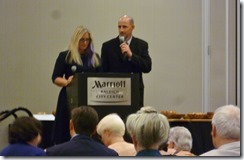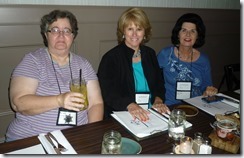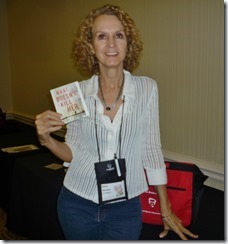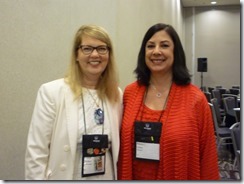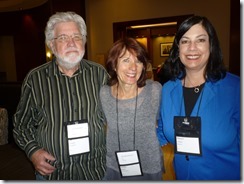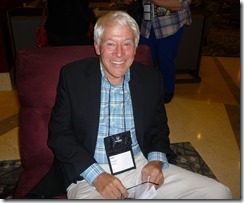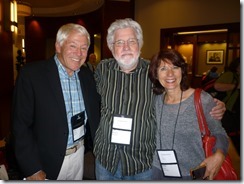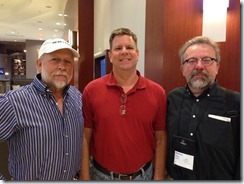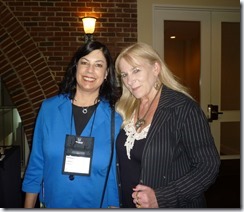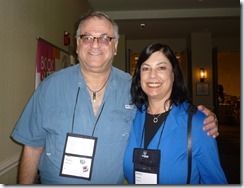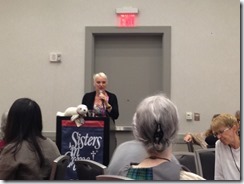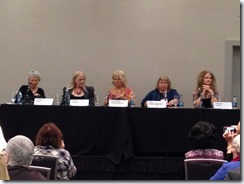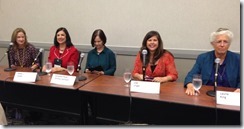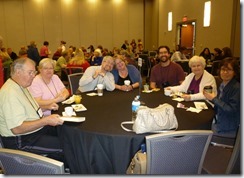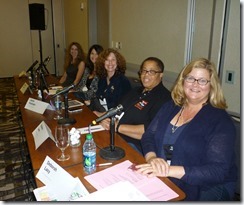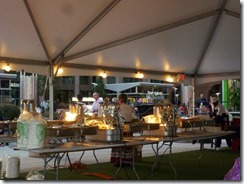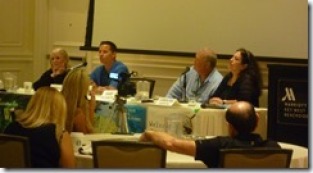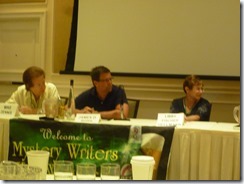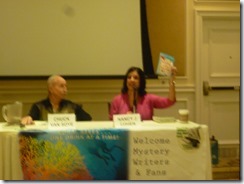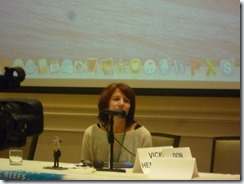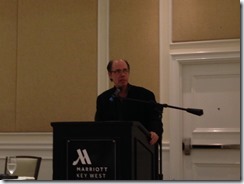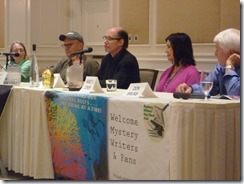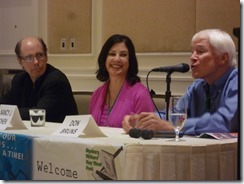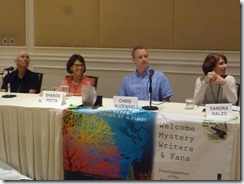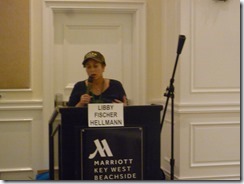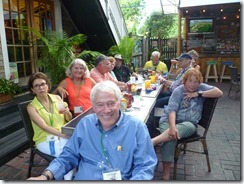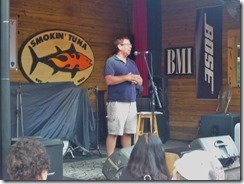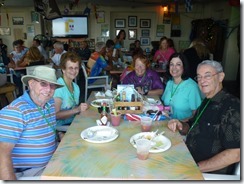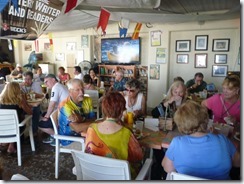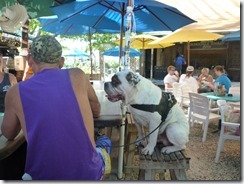Do you know how fast a fire can become deadly? At a talk by an arson investigator at SleuthFest 2016, we saw a film that demonstrated the minutes you have to exit a burning building before everything ignites.

Firefighter personnel include rescue, emergency medical services, special ops, hazardous materials, fire prevention and investigation. The arson investigator may carry a gun and have arrest powers. He conducts interviews and identifies suspects. He can develop charges and arrest the bad guy right there if arson is suspected. The arson investigator will follow a case from beginning to end, from the initial investigation through court appearances. The ideal clearance rate on cases is at least 20 to 30%. These investigators are multi-trained in various disciplines, including post-blast (explosion or bomb) response. The International Association of Arson Investigators has stringent requirements. The investigator’s job includes identifying consumer safety issues regarding fire risk and notifying the authorities.
“People think everything burns up in the fire, but it doesn’t. Everything burns differently. Patterns are left, and evidence is left, at the fire scene.”
Fire Classifications
1. Accidental
a. Cooking fires are the Number One cause of fires right now in the U.S. Unattended cooking in residences can lead to fires. This type accounts for 49.4% of all residential building causes.
b. Heating causes may include careless use of smoking materials or candle use. Post-hurricane, you leave the window open. The draft reaches the candle and blows the flame toward a nearby drape. Or else the candle falls over.
A portable lighter in the hands of a curious child poses a danger. So do cell phone cigarette lighter connectors in your car. These can heat up and then the plastic melts, burns, and causes a car fire. Knockoffs from China are more likely to heat. Make sure to unplug these devices when you leave the car.
c. Electrical malfunctions are another cause. Overloaded outlets and surge protectors are a hazard.
2. Natural, i.e. hurricanes, earthquakes, floods
3. Incendiary
This is a fire that is deliberately set with the intent to cause a fire to occur in an area where the fire should not be. In Florida, you don’t have to prove intent, only that the person willfully and unlawfully set a fire.
4. Undetermined
If a fire should occur on a bed, for example, look at the people and the objects. A pile of clothes burning on the bed is personal. Study the spouse, boyfriend, relationships of the people involved. If the fire occurs in a closet, it might be that a child has flicked a lighter to see what it does, and the flame ignited nearby materials.
Mobile homes are “baked potatoes.” These usually cannot be saved.
Investigative Procedure
Step one is to determine the origin. Where did the fire start? You want to look at the area of origin, which is the general region, and the point of origin, which is the exact physical location where the heat source and fuel interacted.
Step two is to examine the possible cause. This can be overloaded circuits. Coffeemakers can start a fire because sometimes the burner stays on even though it’s supposed to shut off. Investigators look for patterns at a burn scene.
Step three uses the scientific method. The investigator will identify and define the problem; collect and analyze the data; develop and test their theories; and select the final hypothesis.
Fire requires a heat source, fuel, and oxygen. Take away the heat, fuel, or oxygen, and the fire goes away.
Fire travels the path of least obstruction. “As things burn, their chemistry and composition changes.” The upper levels will get heated vapors and gases that occur when furnishings and synthetic materials burn. The smoke heads up to the ceiling and then banks down the walls. So when you are in a fire, do not stand up and breathe. Drop to the floor and crawl.
Other items in the room start to heat up and burn. A flashover is when the heated gas and vapor ignite. This situation is not survivable.
The closer to the floor on the walls that you see the smoke level, the closer you are to a flashover. A flameover is another warning sign. This is when the flames roll across the ceiling. They’re seeking oxygen and will break through windows and walls.
Do not run back into a burning building. You must get out before the flashover.
Another sign is the color of the smoke. It starts out white as Class A materials burn. These are papers, magazines, books. The smoke turns gray when plastics and petroleum products start to burn, like your furniture cushions. Then finally, the smoke turns black. Heat is transferred to other objects in the room via conduction, convection, and radiation.
A flameover to a flashover takes seconds. We saw a film wherein newspapers ignited inside a plastic trash can, which could happen if somebody threw a cigarette butt inside. The papers ignited, and the plastic can melted. The fire leapt to a nearby sofa. We watched the smoke turn from white to dark gray. Other items of furniture caught fire as the heat transferred. Flames rolled across the ceiling. It took minutes for the entire room to be engulfed in a flashover.
My takeaway from this session? Don’t plug one surge protector into another. Don’t overload your electrical sockets. Make sure the burner on your coffeemaker cools down. Don’t leave your cell phone charger plugged in inside your car once you depart. Don’t leave candles and cooking pots unattended. If you’re in a fire, drop and crawl. Don’t inhale the deadly gases. Know your exits and get out of the building fast.
Resources:
http://www.Firearson.com
http://www.Nafi.org
Disclaimer: These notes are my interpretation and are subject to errors which are mine alone.
View Photos from SleuthFest on my Facebook page.
Contest Alert!
Enter to win a $25 Amazon/BN gift card from Booklover’s Bench, where readers are winners. http://bookloversbench.com/contest/









